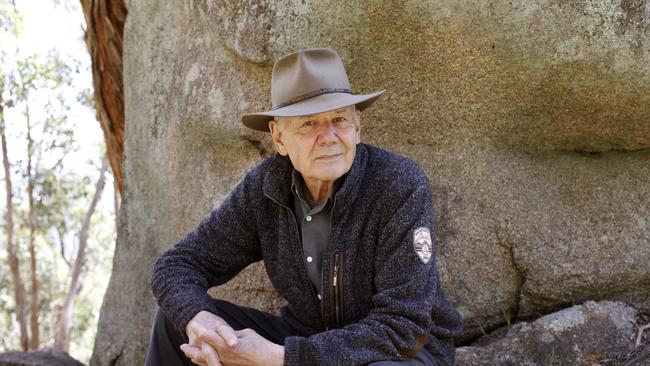The affair that changed everything: Alex Miller’s latest novel
At first glance, the title of Alex Miller’s new novel, A Brief Affair, is dismissed by the central character, the academic and adulteress Dr Frances Egan, a “smart-looking woman of forty-two’’ who is married with two young children.

At first glance, the title of Alex Miller’s new novel, A Brief Affair, is dismissed by the central character, the academic and adulteress Dr Frances Egan, a “smart-looking woman of forty-two’’ who is married with two young children.
She heads the School of Management at a university campus on the outskirts of Melbourne and is on track to become Professor Egan.
The affair happens on a work trip to China. She meets a “man of substance” on a bus and that night this “noble Mongolian horseman” comes to her hotel room and they have rapturous, wordless sex.
This “short everlasting night”, this “moment out of ordinary time”, alters her life. “She was afraid now.” You and I may call it a one-night stand but Frances does not.
“It wasn’t an affair, that sordid word. She was not a woman who had betrayed her husband with another man. She would refuse to name it that. … She knew in her heart she had done nothing wrong but had done something beautiful and real.”
Frances returns to the farm near Bendigo that she shares with her husband Tom, who makes bespoke furniture, and their children Margie and Tommy.
On the surface, she’s “back in the old groove she had worn for herself” but in her private thoughts she rattles the bars of “the safe cage she had known as her familiar world”: wife, mother, professor-to-be. “Why had that not been enough for her?”
It is here the title has a double meaning: our lives are brief affairs. Frances puts it bluntly. “Was she wasting her life?” In China, “I became a foreigner in my own life and I was free. I loved it. I f--king loved it! I met the other in me.”
When she considers, after visiting an elderly couple, “the private world of old age”, she is reduced to a state of angry shock. “It is the world towards which all our efforts and struggles are leading us. A world of fear and pain and futility, a world of confusion. A place where there is no future left, no hope … ”
Miller turns 86 a few days after Christmas. He is a two-time winner of the Miles Franklin Literary Award, for The Ancestor Game in 1992 and Journey to the Stone Country in 2003.
A Brief Affair, his 15th book, is an intense reflection on the life that has been, the life that might have been and the life yet to come. It’s only the final one that we have the power to change.
“We’re not just one person, are we?” Frances thinks. There are truer selves we find and which fit us more honestly that the old selves that once seemed to be us.”
She is inspired by the diary of a young woman, Valerie Sommers, once a patient in the former psychiatric asylum that now houses the university campus. Valerie was in love with another girl, Jessie, who committed suicide. “She wanted a definite connection between herself and Valerie. She knew, her instincts knew it, that such a link existed if only it could find its way through her tumult to an expression of itself.”
Miller’s novels are an ever-expanding map to the psychological complexities and perplexities of human love, intimacy and desire. Borders shift. Love changes over time.
Frances considers her husband of 14 years “an idealist about love and marriage”, someone who sees husband and wife as “two identical trees that would gradually grow together”.
Her own view is: “The perfection of love over time. It was a nonsense.”
Miller engages profoundly with the inner lives of women, perhaps most notably in his 2011 novel Autumn Laing, where the titular protagonist is based on the arts patron Sunday Reed. Autumn, like Frances, rages against the dying of the light.
Dr Frances Egan may be his most intimate female character yet. Will she tell her husband what happened in China? Will she leave him and the kids? This thought, of not returning to the farm, comes to her before her night of passion. “Would the world then come to an end for her, after all? Would it? What a question!” she thinks as she imagines a life free of marriage and motherhood. “One world would end and another begin.”
Will she abandon “the trivial realities of her days” at the university? Will the Mongolian horseman, who she learns is a professor who has visited Australia before, return to see her? Will she return to China to see him? Will the connection with Valerie be made? Is there a chance Valerie is still alive?
These are the questions Frances needs answers to. So will readers of this evocative “what if?” novel by one of Australia’s finest storytellers.
Stephen Romei is a writer and critic.



